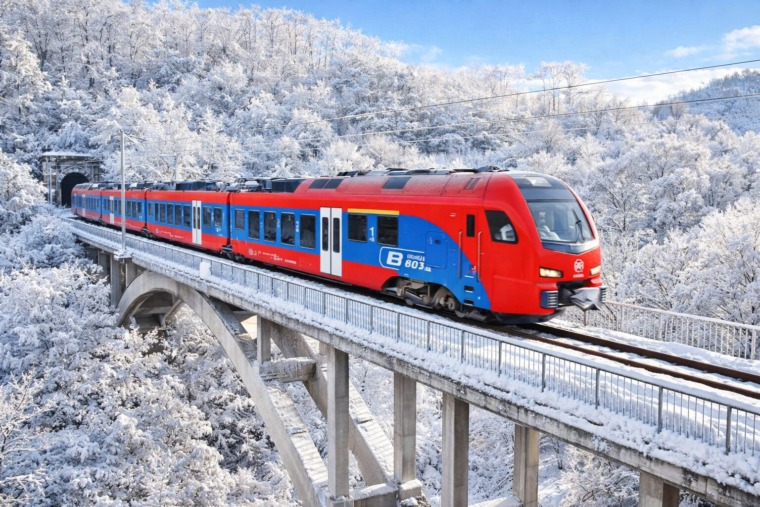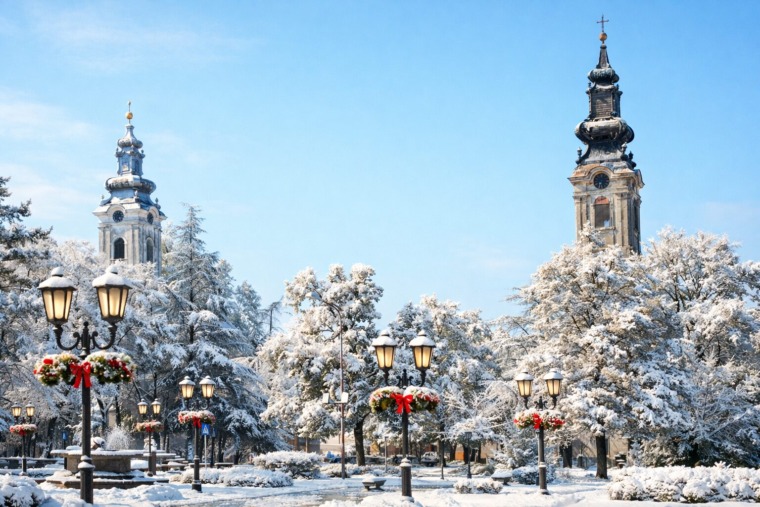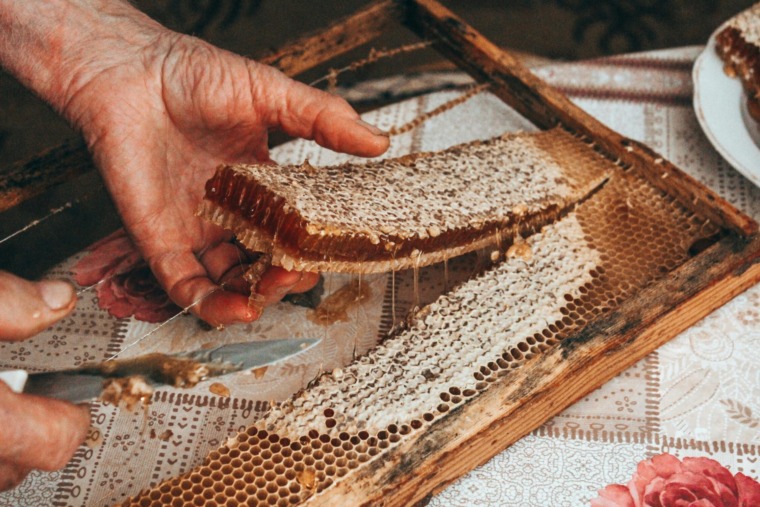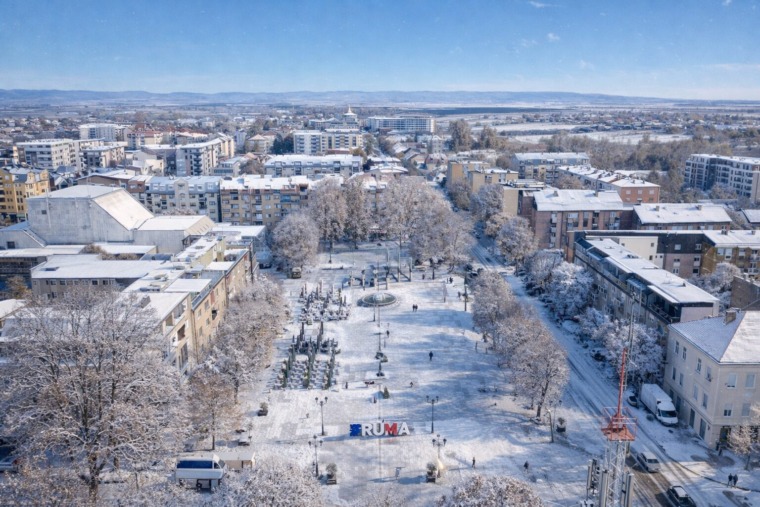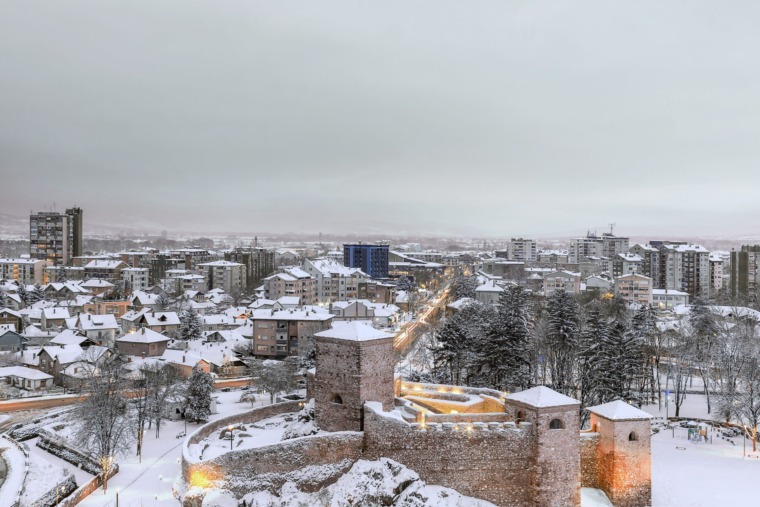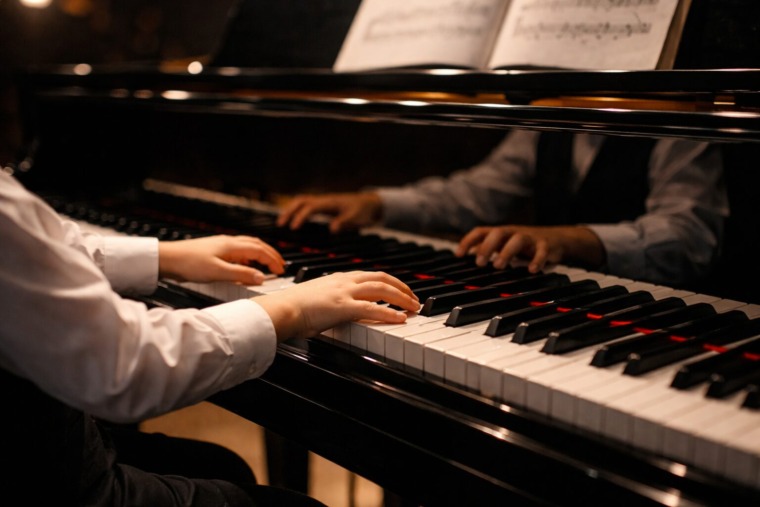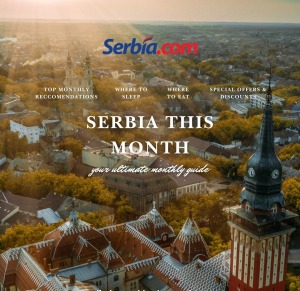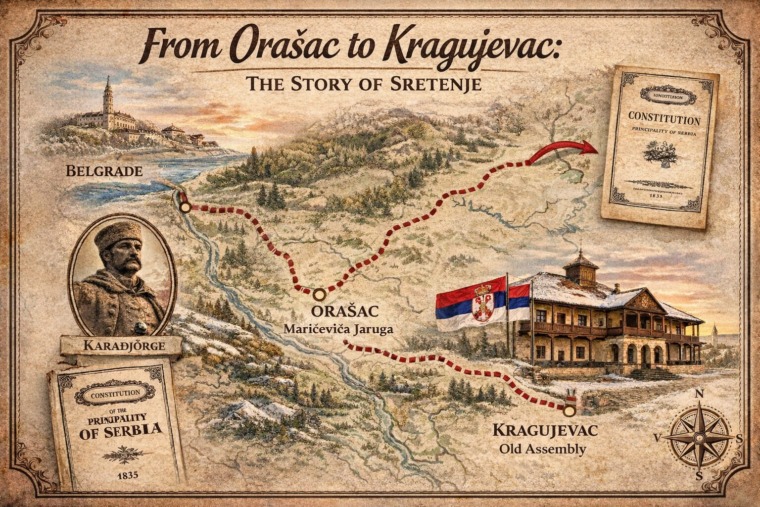
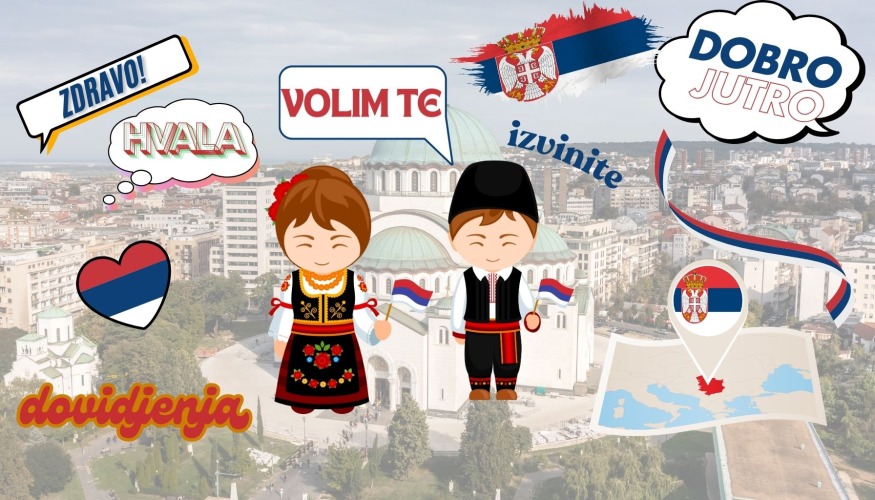
If you’re planning a trip to Serbia, learning a few Serbian phrases can go a long way in making your experience more enjoyable and engaging. Serbian people appreciate it when tourists make an effort to speak their language, even if it’s just a few basic words.
Here’s a list of common Serbian words and phrases that will help you connect with locals, navigate your way around, and show respect for Serbian culture.
1. Hello – Zdravo (Здраво)
- One of the most basic greetings, Zdravo means “Hello” and is a friendly way to start a conversation. Alternatively, you can say Ćao (Ћао) for “Hi” or “Bye,” a more casual greeting used widely.
2. Thank you – Hvala (Хвала)
- Serbian people value politeness, and saying Hvala to express gratitude will be well received. Whether you’re being served at a restaurant or someone holds the door for you, Hvala is a must-know.
3. Please – Molim (Молим)
- Use Molim when making requests or adding politeness to your interactions. You can also use it when you need to say “You’re welcome.”
4. Yes / No – Da / Ne (Да / Не)
- Simple yet essential! Da means “Yes,” and Ne means “No.” It’s helpful to know when agreeing or politely declining.
5. Good morning / Good evening – Dobro jutro / Dobro veče (Добро јутро / Добро вече)
- Greetings change based on the time of day. Dobro jutro is for “Good morning,” and Dobro veče is for “Good evening.” This helps show respect and a bit of cultural awareness.
6. Goodbye – Doviđenja (Довиђења)
- When leaving, saying Doviđenja is a polite way to say “Goodbye.” For more casual settings, Ćao is also commonly used.
7. Excuse me / Sorry – Izvinite (Извините)
- Use Izvinite when trying to get someone’s attention, asking for directions, or apologizing if you bump into someone.
8. Do you speak English? – Da li govorite engleski? (Да ли говорите енглески?)
- Not everyone in Serbia speaks English, especially outside major cities. This phrase will help you find out if someone can communicate with you in English.
9. How much does it cost? – Koliko košta? (Колико кошта?)
- Essential for shopping or haggling at markets. Use Koliko košta? to ask about prices and get familiar with the local currency, the Serbian dinar (RSD).
10. Where is…? – Gde je…? (Где је…?)
- If you need directions, Gde je…? will be your go-to phrase. Add the name of the place or landmark you’re looking for. For example, Gde je hotel? (Where is the hotel?)
11. I don’t understand – Ne razumem (Не разумем)
- If someone speaks too fast or uses complex words, simply say Ne razumem to let them know you’re having trouble understanding.
12. Water – Voda (Вода)
- While ordering at a café or restaurant, Voda is useful for asking for water. Tap water is generally safe in Serbia, but if you want bottled, you can ask for flaširana voda (bottled water).
13. Cheers! – Živeli! (Живели!)
- If you’re sharing drinks with locals, say Živeli! to toast. It’s a friendly gesture that shows you’re participating in the moment and adds to the experience.
14. Help! – Pomoć! (Помоћ!)
- Hopefully, you won’t need it, but Pomoć! is a critical word in emergencies. Shouting it will grab attention if you need assistance quickly.
15. Delicious – Ukusno (Укусно)
- Serbian cuisine is rich and flavorful. Complimenting food with Ukusno is a great way to express appreciation, especially if you’re eating in someone’s home.
Bonus Phrase: I am a tourist – Ja sam turista (Ја сам туриста)
- If you’re lost or in need of help, saying Ja sam turista will quickly convey that you’re a visitor who might need some assistance.
Tips for Speaking Serbian
- Pronunciation: Serbian is a phonetic language, meaning it’s pronounced as it’s written. Focus on pronouncing each letter clearly, especially consonants.
- Politeness: Using phrases like Molim (Please) and Hvala (Thank you) goes a long way in showing respect.
- Body Language: Even if your Serbian is limited, smiling and using polite gestures will help bridge the gap.
- Practice with Locals: Serbian people are generally very welcoming and will appreciate your efforts to speak their language, even if it’s just a few words.
Final Thoughts
Learning some Serbian before visiting will not only help you navigate the country but also create a deeper connection with the culture. Locals are usually thrilled when foreigners make the effort to speak their language, and your efforts will be warmly received.
So pack your bags, brush up on these phrases, and enjoy your journey through Serbia!



